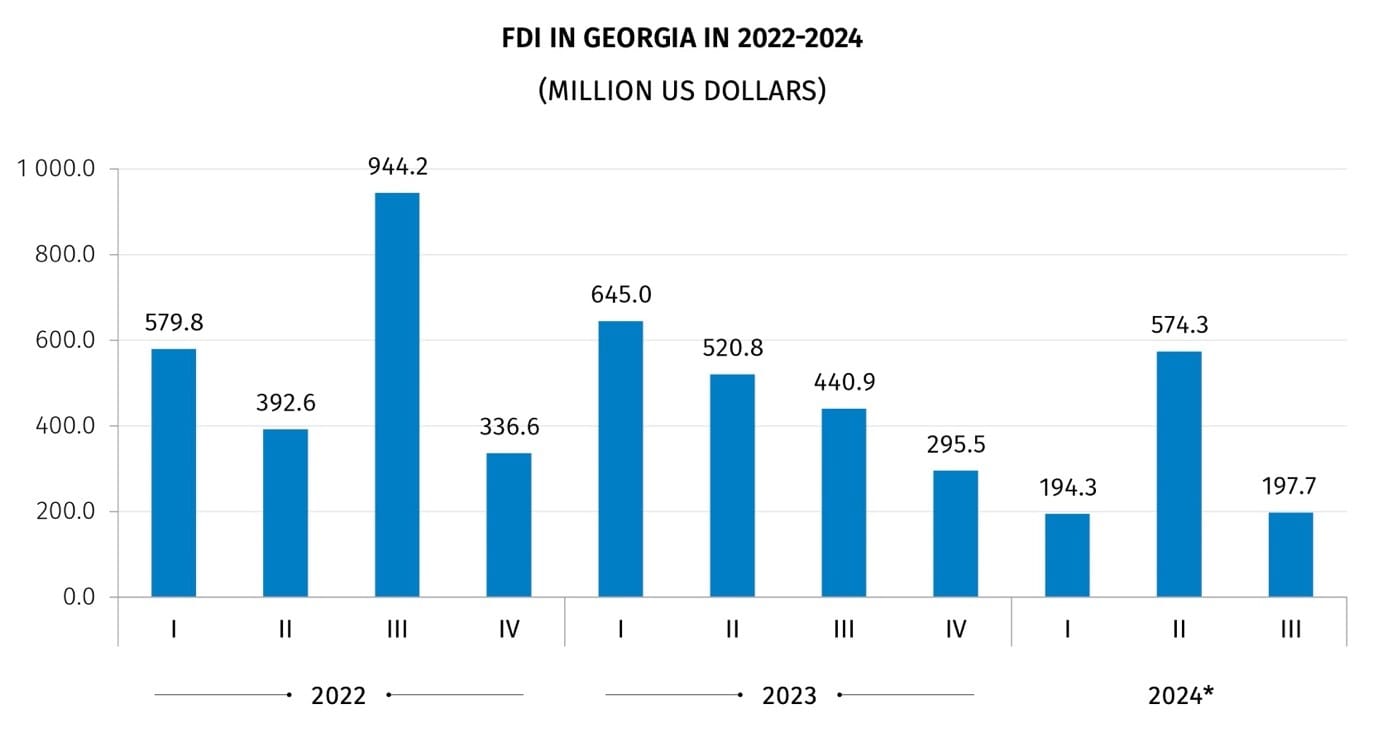Once considered a model for democratic reform in the post-Soviet region and often referred to as the “solar plexus of Eurasia,” Georgia now stands at a critical juncture. Decades of alignment with European and NATO integration have facilitated institutional reforms and strengthened its democratic framework. However, Georgian governments recent shifts toward authoritarianism and democratic erosion pose a severe threat to these accomplishments. Georgia may soon occupy a position that is neither fully aligned with the West nor entirely trusted by its authoritarian allies.
By maintaining its multi-vector “policy of many azimuths,” Georgia risks descending into instability and geopolitical marginalisation, reminiscent of its post-Soviet challenges—shifting from a potential EU candidate to a distant and peripheral neighbour.
The Multi-Vector Policy: A Double-Edged Sword
Since its independence in 1991, Georgia has played a crucial role in the post-Soviet region, navigating a balance between Eastern and Western influences while emphasising its Euro-Atlantic goals. Recent political developments indicate that the ruling Georgian Dream (GD) government is pursuing a path of (self)isolation from the West, which poses risks to the nation’s economic prosperity and strategic security. The shift characterised by the dismissal of Western integration and a growing dependence on authoritarian regimes like China and Russia, central Asia and Gulf states carries significant implications for Georgia’s future.
Georgia’s strategic shift away from its Euro-Atlantic path has significant ramifications beyond diplomacy.
It seems that Tbilisi is not simply altering alliances but is actively redefining its position within a contentious geopolitical arena, where alignment decisions have enduring consequences. Mikheil Kavelashvili election as President by College of GD MPs and Local Councilors in December 2024 cemented Georgia’s diplomatic alienation. No Western leader extended congratulations, and the European Union, NATO, and the United States expressed concerns over the legitimacy of the election process. This stark diplomatic boycott signals Georgia’s growing detachment from the international democratic community, pushing it into the orbit of illiberal regimes like Belarus and Russia.
The consequences of this political shift could be dire. The U.S.-Georgia Strategic Partnership Charter, once a cornerstone of bilateral relations, has been effectively suspended.
The European Parliament’s “Resolution on the the further deterioration of the political situation in Georgia” (EP 2025), the UK’s Wardrop Dialogue (Reuters 2024) and Sweden’s parliamentary cooperation agreements have also been frozen due to concerns over democratic backsliding (Sweden Government 2025). Meanwhile, Georgia has withdrawn from PACE, further isolating itself from key European institutions (PACE,2025). Moreover, recent Czech Senate Committee’s resolution strongly condemns the October elections in Georgia and calls for new parliamentary elections under international supervision (Senat, 2025). Yet, as ties with Western democracies erode, Georgia’s leadership is doubling down on engagements with authoritarian-leaning regimes. The Georgian government actively strengthens its (political, ideological, economic) ties with officials from Azerbaijan, Turkey, China, and the UAE, while its relations with Western nations remain stagnant.
By deviating from its European integration path, Georgia jeopardises its long-term connection to the Western security and economic frameworks.
The denial of EU candidate status, the stagnation in fulfilling the 9-point reform criteria established by Brussels, and the government’s anti-Western rhetoric indicate a deliberate shift away from Georgia’s European ambitions. This path has historical precedent. Belarus, previously a nation with ambitions for European integration, has effectively transformed into a Russian vassal state, resulting in a loss of economic sovereignty and strategic autonomy. Georgia may face comparable consequences if it fails to alter its current trajectory.
Economic Implications: Decreased Investment and Increased Vulnerability
The political isolation of Georgia has led to significant economic repercussions. In the third quarter of 2024, Foreign Direct Investment (FDI) decreased by 55.2% compared to the same period in 2023 (Geostat, 2024). Germany, a significant economic partner, has suspended infrastructure projects worth €237 million ($244 million) as a result of political instability (Georgia Today, 2024). Western investors, once attracted to Georgia’s economic liberalisation, now view it as a high-risk environment.

Source: (Geostat, 2024).
The growth of Russia’s economic influence in Georgia is happening at an unprecedented pace. In 2023, Russian nationals established a record number of enterprises in Georgia, leveraging the country’s relatively liberal business environment and tax structure. The presence of Russian-owned enterprises has led to an economic landscape where Moscow wields increased influence over Georgia’s financial and commercial sectors (Menabde, 2024). Kremlin is employing economic mechanisms to enhance its influence. At the 10th International Economic Forum “Southern Gate of Russia 2024,” Russian officials emphasised the importance of revitalising and strengthening economic and socio-cultural ties with Georgia, including the creation of new transit corridors and improved cross-border cooperation (Anjabaridze 2025).
The incorporation of Russian enterprises into Georgia’s economy could result in heightened economic reliance on Moscow, consequently reducing Tbilisi’s ability to implement independent policy choices that oppose Russian interests.
The significant rise in the number of Russian citizens moving to Georgia following the 2022 invasion of Ukraine presents the Kremlin with an added strategic advantage. Moscow has consistently asserted its entitlement to “protect” its citizens abroad, a narrative that has historically functioned as a rationale for intervention. The growing presence of Russian nationals in Georgia poses a potential risk, as Russia may leverage this demographic to justify future political or security measures.
The deterioration of energy security in Georgia is notably alarming. Georgia, previously strengthened by EU-supported diversification efforts, is now increasingly reliant on Russian gas imports, making it vulnerable to the energy coercion experienced by Moldova and Ukraine (Kapanadze, 2025). This transition threatens Georgia’s long-term energy independence and reduces its standing in regional energy frameworks.
Security Implications: The Erosion of Georgia’s Strategic Position
The alteration in Georgia’s alignment away from Western alliances has significantly compromised its security framework. NATO, once viewed as a crucial deterrent against Russian aggression, is now deemed a lesser priority by GD policymakers.
The decline in participation in NATO-led military exercises, coupled with the government’s anti-NATO rhetoric, has alienated significant allies.
Russia is exploiting Georgia’s diplomatic weaknesses to strengthen its influence. Foreign Minister Sergei Lavrov recently emphasised Georgia’s invitation to join the Russian-led ‘3+3’ format, underscoring concerns about the Kremlin’s intentions to further integrate Georgia into its sphere of influence (JAMnews, 2025). Georgia’s ongoing refusal to join this platform has led to greater isolation from the West, consequently increasing its vulnerability to pressure from Moscow.
Russia’s ongoing occupation of Abkhazia and South Ossetia further intensifies Georgia’s vulnerability. With the deterioration of Georgia’s relations with the West, Russia is reinforcing its dominance over these regions, leading to a reduction in Tbilisi’s leverage. The continued exclusion of Georgia from key international security discussions considerably weakens its ability to counter Russian influence. As Western nations concentrate on aiding Ukraine, Georgia risks undermining its role as a significant contributor to Black Sea security frameworks.
In Sum:
Georgia’s transition to self-isolation signifies not just a temporary political misstep, but a profound reconfiguration that could influence its trajectory for many years ahead. The country is alienating its traditional foreign policy partners of behavior, jeopardising its economic integrity, and weakening its security architecture, all the while bolstering external forces that do not align with its long-term strategic interests. The effects of this approach will not manifest immediately; however, they will have enduring implications. Historical evidence indicates that distancing from democratic allies promotes authoritarian tendencies, economic stagnation, reliance and overdependence on non-democratic actors.
Economic resilience, diplomatic agency, peace and security are fostered through proactive engagement in the ever-changing geopolitical context, as opposed to irrelevance through isolation. Georgia finds itself at a crossroads.
Zinaida Bechná
Dr. Zinaida Bechna is an Assistant Professor and researcher at the Department of International Relations and European Studies within the Faculty of Social Studies at Masaryk University. She also coordinates the Horizon Twinning project CENTREPEACE. Her research focuses on conflict dynamics in Post-Soviet regions, with an emphasis on the South Caucasus, the mechanisms of norm diffusion, and the impact of foreign interference.




